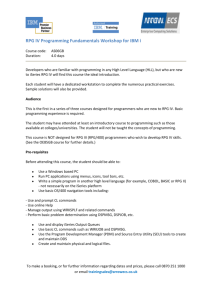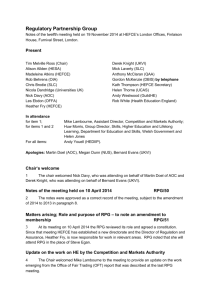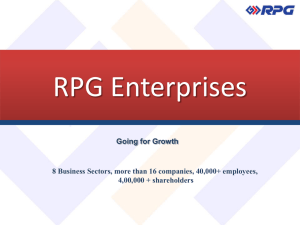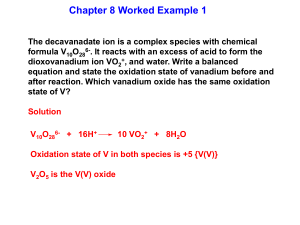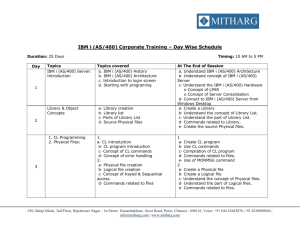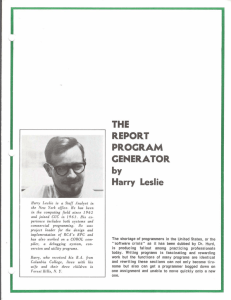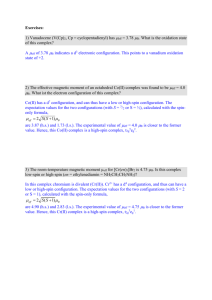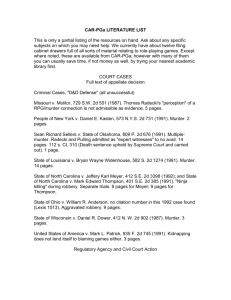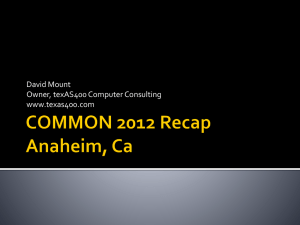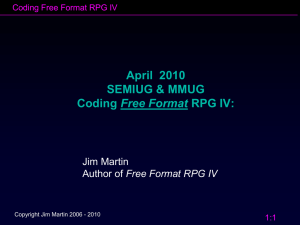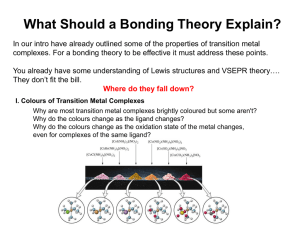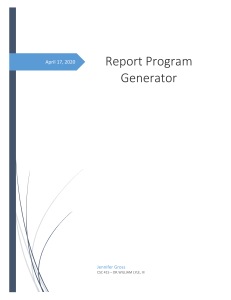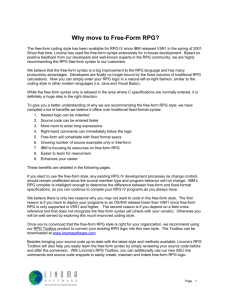Slide 1
advertisement
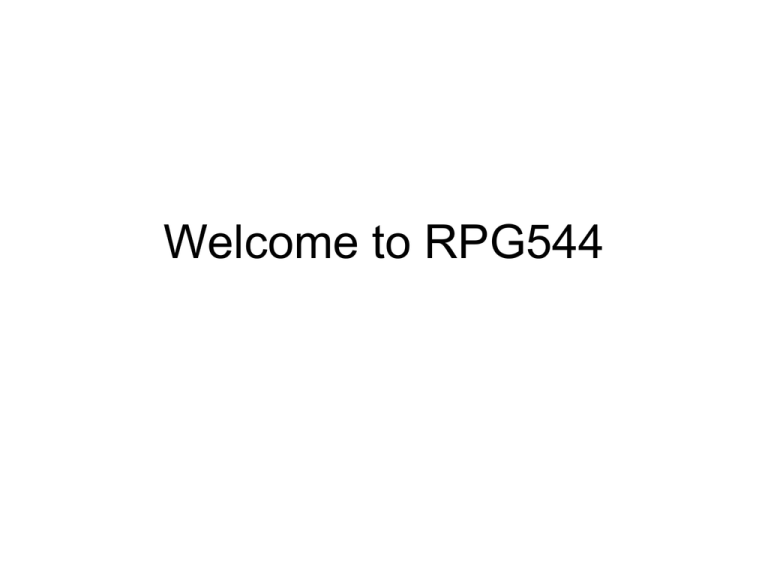
Welcome to RPG544 Bit about Cindy Administrative Stuff • Standards • Due Dates • Web Page RPG IV R – Report P – Program G – Generator Version 4 History of RPG • 1964: RPG - Report Program Generator • 1969: RPG II – With release of System/3 • 1979: RPG III – Interactive programming – Database – Structured Programming • 1988: RPG/400 – Upgrade to RPG III • 1994: RPG IV – Integrated Language Environment (ILE) – Modular Programming Things that made RPG unique • Program Cycle Read a record Loop until Eof process the record read a record End of loop • Indicators Specifications • Programs are organized in a series of specifications and appear in this order Spec Type Description When Introduced H Header (control) RPG F File RPG D Definition RPG IV I Input RPG C Calculation RPG O Output RPG P Procedure RPG IV H-Specs (Control Specifications) • Default formats (eg. Date formats) • Changes to normal processing modes – Eg changing the internal method that the program uses to evaluate expressions • Special options to use when compiling the program • Language enhancements that effect the entire program H Datfmt(*ISO) Timfmt(*HMS) F-Specs Position Use Position Use 7-16 File Name 23-27 Record Length For program described 17 File Type (I, U, or O) 36-49 Device Disk, Printer, Workstation 18 File Designation Blank – output file F – Full Procedural P – Primary File (logic cycle) S – Secondary File (logic Cycle) R – Record address file T – Table 44-80 Keywords (see appendix A of text book) 22 File Format F – Program Described E – Externally Described D-Specs (Definition) • • • • • Standalone variables Named constants Data Structures Prototypes Procedure Interfaces D-Specs • Data name – 15 characters – Must start with a letter of the alphabet or $, # or @ – Remaining characters must be letters, numbers, _, #, $ or @ • Declaration Type – – – – – DS – Data Structure C – Constant PR – Procedure PI – Procedure Interface S – Standalone Variable D-Specs • Length – Length of Data • Decimal Places – Number of decimal places • Data type I-Specs (Field Definition) • Used to define fields in the file Pos Use Pos Use 7 – 16 Filename 36 Data Type 17 – 18 Sequence NS – if no sequence required 2 digit number if sequence is required 37 – 46 Field Location 19 Number Leave blank 47 – 48 Decimal Positions Required by numeric fields 20 Option Leave blank 49 – 62 Field Name 6 characters up to RPGIII 14 characters RPG IV 21 – 22 Record id (indicator) C-Specs (Calculation) • Program logic! Factor1 Opcode Factor2 Result Indicators • RPG IV introduces free form RPG for CSpecs O-Specs (Output) • Define the output of the program. May be report definitions or database. Pos Use Pos Use 7-16 FileName 30 - 43 Field Names 17 Type D-Detail H-Header E-Exception T-Total 53 – 80 Constants / Edit Word 30 – 39 Exception Name 47 – 51 End Position 40 – 45 Skip and Space Entries 52 Edit code P-Specs • Will discuss later in the course Add qty1 add qty2 qty3 or add qty qty3 Sub qty1 sub qty2 diff or sub qty diff Mult price mult qty sales or mult 0.14 sales Div sales div qty price or div qty sales Read • Reads the next record from a database object (sequential read) read sales 99 will ‘turn on’ indicator 99 if the end of file is reached. EXCPT (EXCEPT) • Writes output to printer files excpt format IF • RPG, RPGII, RPGIII – IFEQ, IFNE, IFLE, IFLT, IFGT, IFGE, etc – Ends with endif qty ifeq 0 endif • RPGIV free format – If – Ends with endif If qty = 0; Endif; Do Loops • RPG, RPGII, RPGIII – DOWEQ, DOWNE, DOUEQ, DOUNE etc – Ends with ENDDO Qty Doweq 0 enddo • RPGIV free format – DOW, DOU – Ends with ENDDO Dow qty < 0; enddo; Itempgm Demo

